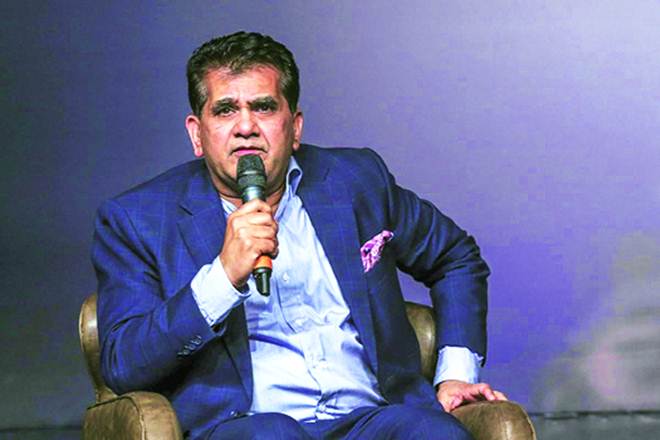The government and regulators should step back and lower the compliance burden on businesses till the coronavirus-induced crisis blows over, several speakers at a Niti Aaayog-organised Webinar said on Saturday. The need of the hour was to promote remote working, expand the gig economy and strengthen the social security net, they said.
With no one prepared for the current pandemic, companies are beginning to question the current cost structure and regulatory structure, said Hero enterprise chairman Sunil Munjal at the webinar titled ‘COVID-19 and The Future of Work’. Niti Aayog CEO Amitabh Kant presided over the special discussion.
“Many people will get unemployed and will look to work in the gig economy to sustain themselves over the next couple of years. Eventually, that will become the new normal,” said Urban Company co-founder Abhiraj Bhal.
NASSCOM president Debjani Ghosh said that the pandemic will change the work spaces forever and work from home will ensure a better balance in the workforce by ensuring more participation of the female workers. “I think we should give SMEs and start-ups complete break from all the regulatory/legislative processes for at least the next 2-3 years,” Ghosh said. She also asked the government to immediately pay MSMEs and start-ups their unpaid dues to tide over the current crisis.
While corporates are pondering over how much of their work force should be on regular payrolls and how much on contractual basis, Munjal said that the crisis has given an opportunity to them to make India as the supply chain of the world if conducive environment is provided.
“The entire regulatory structure that we have today is seen as a policeman, it is not seen as a facilitator. At times, they are taking decisions which appear to be biased to some part of the industry within the system. We need to review the whole thing,” Munjal said.
TeamLease chairman Manish Sabharwal said work from home has provided continuity but it also has to ensure productivity in the long run and advocated for deeper reforms in education. “I believe apprenticeship which is learning by earning/doing is the future of education. We have a market failure in skill development. Next wave of innovation is needed in skill financing,” Sabharwal said. He sought urgent removal of caps in apprenticeship (currently at 5 lakh) and online learning (allowed in 30 Universities out of 800).

